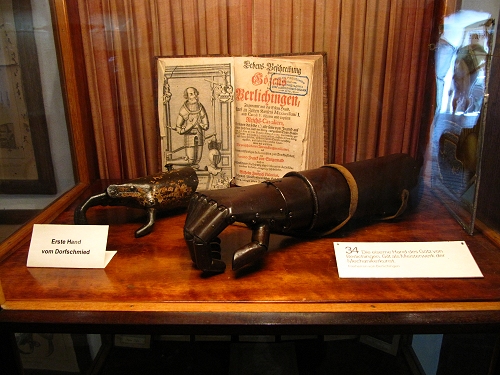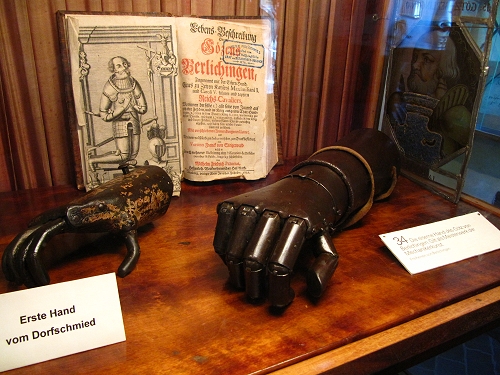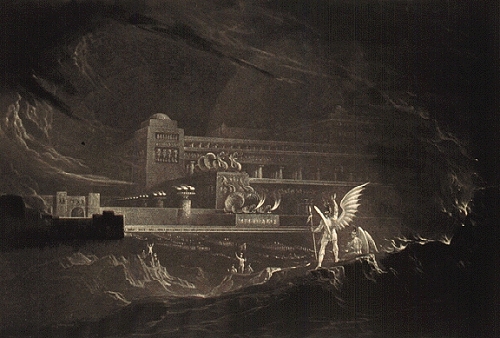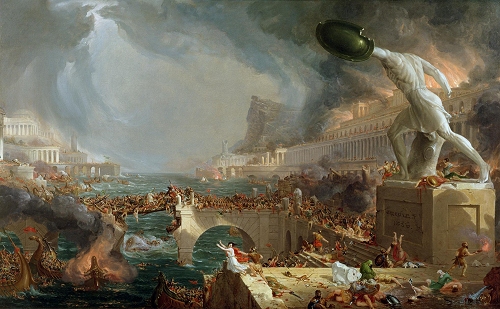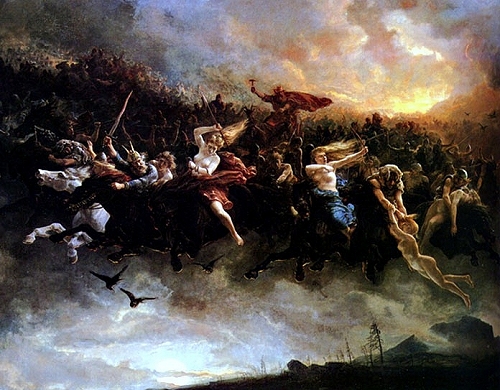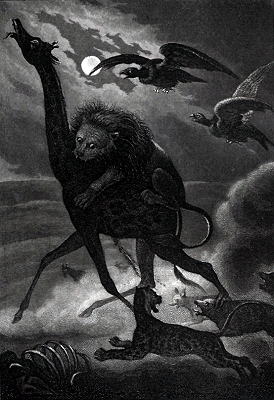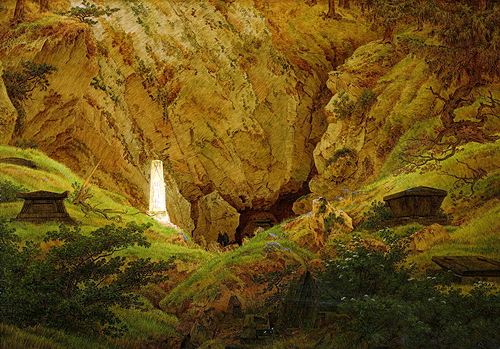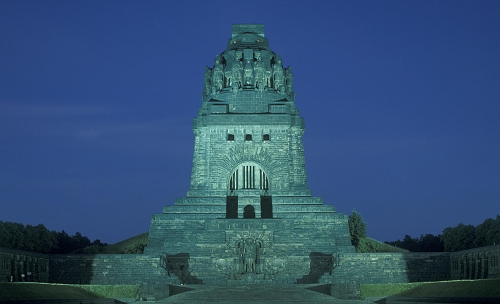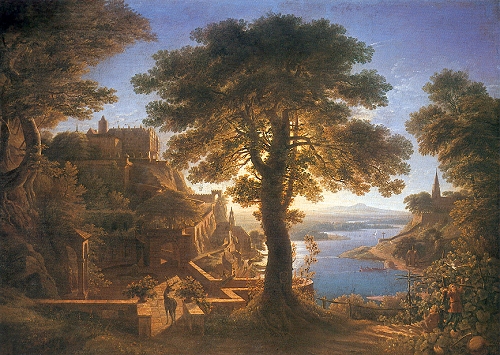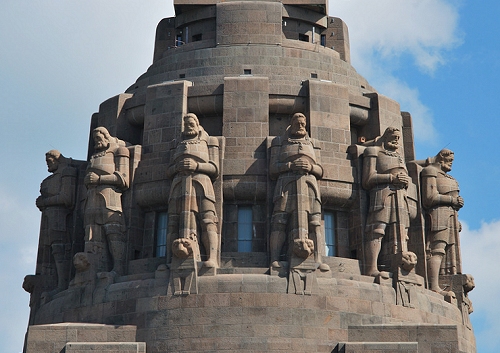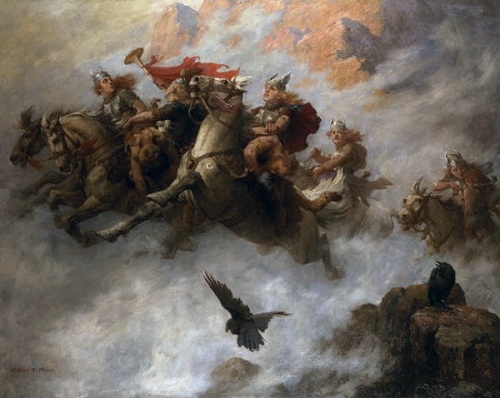 LEONORE
LEONORE (1773)
Gottfried August BürgerUpstarting with the dawning red,
Rose Leonore from dreams of ill.
"Oh, Wilhelm! art thou false, or dead?
How long, how long, wilt loiter still?"--
The youth had gone to Prague to yield
King Frederick aid in battle-field,
Nor word nor friend had come to tell
If he were still alive and well.
War's trumpet blew its dying blast,
And o'er the empress and the king
Long-wished, long looked-for Peace at last
Came hovering upon angel-wing.
And all the hosts, with glittering sheen,
And kettledrum and tambourine,
And decked with garlands green and gay,
Marched, merrily, for home away.
And on the highways, paths, and byways,
Came clustering, mustering, crowds and groups
Of old and young, from far and nigh-ways,
And met with smiles the noble troops.
"Thank God!" the son and mother cried--
And "Welcome!" many a joyous bride:
But none throughout that happy meeting
Hailed Leonore with kiss or greeting.
She wandered hither, hurried thither;
She called aloud upon her Lost,
But none knew aught of him she sought,
Of all that far-extending host.
When all was vain, for sheer despair
She madly tore her night-black hair,
And dashed herself against the stones,
And raved and wept with bitter groans.
Then came her mother hurriedly--
"Oh, God of Mercy!--what alarms
My darling child? What troubles thee?"--
And locked her fondly in her arms.
"Oh, mother, mother! dead is dead!
My days are sped, my hopes are fled:
Heaven has no pity on me--none--
Oh, woe is me! oh, wretched one!"
"Alas! alas! Child, place thy trust
In God, and raise thy heart above:
What God ordains is right and just,
He is a God of tender love."--
"Oh! mother, mother! false and vain,
For God has wrought me only pain!
I will not pray--my plaint and prayer
Are wasted on the idle air!"
"No, no, my child!--not so--the Lord
Is good--He heals His children's grief;
The Holy Eucharist will afford
The anguish of thy soul relief."--
"Hush, mother, mother! What I feel
No Eucharist can ever heal--
No Eucharist can ever give
The shrouded Dead again to live."
"Ah, child, perchance thy lover now--
A traitor to his love and thee--
Before the altar plights his vow
To some fair girl of Hungary:
Yet weep not this perfidious wrong,
For he will rue it late and long,
And when he soul and body part
His faithlessness will burn his heart."
"Oh, mother, mother! gone is gone,
And lorn for once is ever lorn!
The grave is now my hope alone:
Would God that I had ne'er been born!
Out, out, sick light! Out, flickering taper!
Down, down in night and charnel vapour!
In Heaven there is no pity--none--
Oh, woe is me! oh, wretched one!"
"Oh, God of mercy, enter not
In judgment with thy suffering child!
Condemn her not--she knows not what
She raves in this delirium wild.
My child, forget thy tears and sighs,
And look to God and Paradise:
A holier bridegroom shalt thou see,
And He will sweetly comfort thee."
"Oh, mother, what is Paradise?
Oh, mother, what and where is Hell?
In Wilhelm lies my Paradise--
Where he is not my life is Hell!
Then out, sick light! Out, flickering taper
Down, down in blackest night and vapour!
In heaven, on earth I will not share
Delight if Wilhelm be not there!"
And thus, as reigned and raged despair
Throughout her brain, through every vein,
Did this presumptuous maiden dare
To tax with ill God's righteous will,
And wrang her hands and beat her breast
Till sank the sunlight in the west,
And under heaven's ethereal arch
The silver stars began their march.
When, list! a sound!--hark!
hoff, hoff, hoff! It nears, she hears a courser's tramp--
And swiftly bounds a rider off
Before the gate with clattering stamp;
And hark, the bell goes
ring, ding, ding!And hark again!
cling, ling, ling, ling!And through the portal and the hall
There peals a voice with hollow call:
"What, ho! Up, up, sweet love inside!
Dost watch for me, or art thou sleeping?
Art false, or still my faithful bride?
And smilest thou, or art thou weeping?"--
"What! Wilhelm! thou? and come thus late!
Oh! Night has seen me weep and wait
And suffer so! But oh! I fear--
Why this wild haste in riding here?"
"I left Bohemia late at night:
We journey but at midnight, we!
My time was brief, and fleet my flight.
Up, up! thou must away with me!"--
"Ah, Wilhelm! come inside the house;
The wind moans through the firtree boughs;
Come in, my heart's beloved! and rest
And warm thee in this faithful breast."
"The boughs may wave, the wind may rave;
Let rave the blast and wave the fir!
Though winds may rave and boughs may wave
My sable steed expects the spur.
Up! gird thyself, and spring with speed
Behind me on my sable steed!
A hundred leagues must yet be sped
Before we reach the bridal bed."
"Oh, Wilhelm! at so drear an hour,
A hundred leagues away from bed!
Hark! hark! 'Eleven' from the tower
Is tolling far with tone of dread!"
"Look round! look up! The moon is bright.
The Dead and We are fleet of flight:
Doubt not I'll bear thee hence away
To home before the break of day."
"And where is then the nuptial hall?
And where the chamber of the bride?"
"Far, far from hence! Chill, still, and small,
But six feet long by two feet wide!"
"Hast room for me?" "For me and thee!
Quick! robe thyself and come with me.
The wedding guests await the bride;
The chamber-door stands open wide."
Soon up, soon clad, with lightest bound
On that black steed the maiden sprung,
And round her love, and warmly round,
Her snow-white arms she swung and flung;
And deftly, swiftly,
hoff, hoff, hoff!Away went horse and riders off;
Till panted horse and riders too,
And sparks and pebbles flashed and flew!
On left and right, with whirling flight,
How rock and forest reeled and wheeled!
How danced each height before their sight!
What thunder-tones the bridges pealed!
"Dost fear! The moon is fair to see;
Hurrah! the Dead ride rapidly!
Beloved! dost dread the shrouded Dead?"
"Ah, no! but let them rest," she said.
But see! what throng, with song and gong
Moves by, as croaks the raven hoarse!
Hark! funeral song! Hark! knelling dong!
They sing, "Let's here inter the corpse!"
And nearer draws that mourning throng,
And bearing hearse and bier along.
With hollow hymn outgurgled like
Low reptile groanings from a dyke.
"Entomb your dead when midnight wanes,
With knell, and bell, and funeral wail!
Now homewards to her dim domains
I bear my bride--so, comrades, hail!
Come, Sexton, with the choral throng,
And jabber me the bridal song.
Come, Priest, the marriage must be blessed
Before the wedded pair can rest!"
Some spell is in the horseman's call,
The hymn is hushed, the hearse is gone,
And in his wake the buriers all,
Tramp, tramp, come clattering, pattering on;
And onward, forward,
hoff, hoff, hoff!Away swept all in gallop off,
Till panted steeds and riders too,
And sparks and pebbles flashed and flew.
On left and right, with flight of light,
How whirled the hills, the trees, the bowers!
With lightlike flight, on left and right,
How spun the hamlets, towns, and towers!
"Dost quail! The moon is fair to see;
Hurrah! the Dead ride recklessly!
Beloved! dost dread the shrouded Dead?"
"Ah! let the Dead repose!" she said.
But look! On yonder gibbet's height,
How round his wheel, as wanly glances
The yellow moon's unclouded light,
A malefactor's carcase dances!
"So ho! poor Carcase! down with thee!
Down, Thing of Bones, and follow me!
And thou shalt briskly dance, ho, ho!
Before us when to bed we go!"
Whereon the Carcase,
brush, ush, ush! Came rustling, bustling, close behind,
With whirr as when through hazel-bush,
Steals cracklingly the winter wind.
And forward, onward,
hoff, hoff, hoff!Away dashed all in gallop off,
Till panted steeds and riders too,
And fire and pebbles flashed and flew.
How swift the eye saw sweep and fly
Earth's bounding car afar, afar!
How flew on high the circling sky,
The heavens and every winking star.
"Dost quake? The moon is fair to see.
Hurrah! the Dead ride gloriously!
Beloved! dost dread the shrouded Dead?"
"Oh woe! let rest the Dead!" she said.
" 'Tis well! Ha! ha! the cock is crowing;
Thy sand, Beloved, is nearly run!
I smell the breeze of Morning blowing.
My good black steed, thy race is done!
The race is done, the goal is won--
The wedding bed we shall not shun!
The Dead can chase and race apace!
Behold! we face the fated place!"
Before a grated portal stand
That midnight troop and coalblack horse,
Which, touched as by a viewless wand,
Bursts open with gigantic force!
With trailing reins and lagging speed
Wends onward now the gasping steed,
Where gastily the moon illumes
A wilderness of graves and tombs!
He halts. O horrible! Behold--
Hoo! hoo! behold a hideous wonder!
The rider's garments drop like mould
Of crumbling plasterwork asunder!
His skull, in bony nakedness,
Glares hairless, fleshless, featureless!
And now a skeleton he stands,
With flashing Scythe and Glass of Sands!
High roars the barb--he snorts--he winks--
His nostrils flame--his eyeballs glow--
And, whirl! the maiden sinks and sinks
Down in the smothering clay below!
Then howls and shrieks in air were blended;
And wailings from the graves ascended,
Until her heart, in mortal strife,
Wrestled with very Death for Life!
And now, as dimmer moonlight wanes,
Round Leonore in shadowy ring
The spectres dance their dance of chains,
And howlingly she hears them sing--
"Bear, bear, although thy heart be riven!
And tamper not with God in heaven.
Thy body's knell they soon shall toll--
May God have mercy on thy soul!"
-trans. James Calrence Mangan
-German title:
Lenore.(Illustration is Horace Vernet,
The Ballad of Leonore, 1839.)
